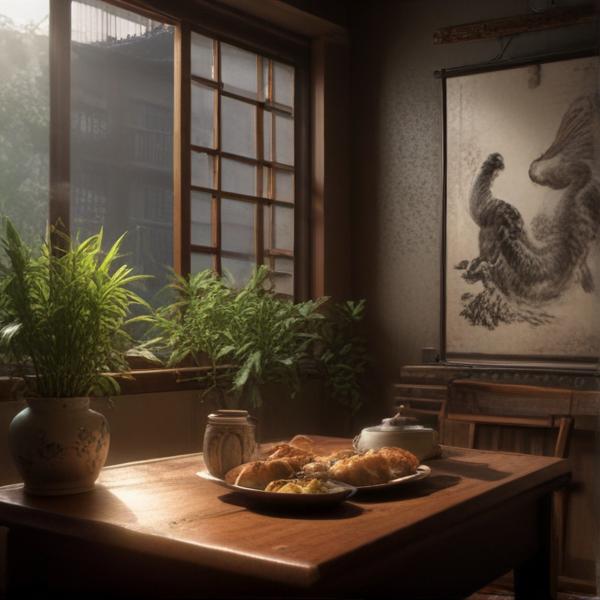基本信息 (Basic Information)
含义与用法 (Meanings & Usage)
中文核心释义 (Core Chinese Meaning): 空闲,没有事务、约束或限制;不被占用、无事可做。
英文核心释义 (Core English Meaning): leisure, free (not busy), unoccupied, idle
象形意义 / 为何这么写 (Pictographic Meaning / Writing Rationale)
文言文释义 (Classical Chinese Meaning)
与现代意义相近,多指门内的空隙,也用作空闲、无事。Similar to modern meaning; often referred to the space inside a gate or being free from affairs.
深入学习 (In-depth Study)
字源故事 (Origin Story)
字形演变 (Character Evolution)
常用词语和例句 (Common Words & Examples)
空闲 (free time, leisure)
我在空闲的时候喜欢看书。
Eng: I like to read books during my free time.
闲聊 (chat casually, small talk)
他们在公园里边走边闲聊。
Eng: They chatted casually while walking in the park.
闲置 (idle, left unused)
这台旧电脑已经闲置很久了。
Eng: This old computer has been idle for a long time.
相关成语 (Related Idioms)
无事可做,百无聊赖
Meaning: nothing to do, extremely bored
多语言翻译 (核心释义) (Translations (Core Meaning))
- French: loisir, libre, inoccupé
- German: Freizeit, frei, unbesetzt
- Spanish: ocio, libre, desocupado
- Italian: tempo libero, libero, inattivo
- Portuguese: lazer, livre, desocupado
- Russian: свободный, досуг, незанятый
- Arabic: فراغ، غير مشغول، وقت الفراغ
- Persian: فراغت، آزاد، بیکار
- Dutch: vrije tijd, vrij, ongebruikt
- Polish: wolny, czas wolny, nieużytkowany
- Vietnamese: nhàn rỗi, rảnh rỗi, không bận
- Ukrainian: дозвілля, вільний, незайнятий
视频学习资源 (Video Learning Resources)
通过以下链接在热门视频网站搜索 "闲" 的更多讲解:
Search for more explanations of "闲" on popular video sites:
- 在 Bilibili.com 搜索 "闲 字源 说文解字" (Search on Bilibili)
- 在 YouTube.com 搜索 "闲 character origin etymology" (Search on YouTube)
网络参考 (Web References for "闲") ()
网络内容摘要 (Web Content Summary):
“闲”的核心含义是指“空闲、没有事、悠闲”的状态。它常用来形容不用忙于事务,处于休息或放松的状态。 The core meaning of "闲" is "leisure, being free from work, or being at ease." It often refers to a state of relaxation or not being occupied.
- 象形起源或文化背景:“闲”字的繁体有两种写法:閒(门+月)和閑(门+木)。实际上,这两个是不同的字。通常用在“空闲、闲置”等词语中的“闲”应为“閒”,其字形像门里有月亮,象征门内安静、无人打扰,表达了空闲和安逸的意思。 Pictographic origin or cultural background: The traditional forms are "閒" (door + moon) and "閑" (door + wood), which are actually two different characters. "閒" (used in "free time," "idle") depicts a moon inside a door, symbolizing peace and leisure inside a quiet door.
- 常见用法及常用词:常见词语有如“空闲”(free time)、“闲置”(idle, unused)、“闲聊”(chat casually)等。举例:“闲晏”(悠闲安逸)、“闲素”(悠闲纯朴)、“闲逛”(漫步、散步)。 Common usage & vocabulary: Frequently used in words such as "空闲" (free time), "闲置" (idle), and "闲聊" (chat). Examples include "闲晏" (leisurely and comfortable), "闲素" (simple and leisurely), "闲逛" (stroll, wander).
- 易混淆点:“闲”与“閑”在传统汉字中意义和用法有别,且“閑”的原意是“门前的围栏”,与现代“闲(free, at leisure)”的含义不同。日常所用的“空闲、闲置”等应使用“閒/闲”。 Common confusion: "閒" and "閑" are different in traditional Chinese. "閑" originally meant "fence before the door" and is not used for "free time." Use "閒/闲" for "leisure" or "idle" meanings.
成语或扩展:相关常用成语或词语还有“闲是闲非”(无关紧要的对错)、“闲账”(与己无关之事)。 Idioms & extended use: Phrases such as "闲是闲非" (trivial rights and wrongs) and "闲账" (matters unrelated to oneself) use "闲."
注意:繁体与简体用法存在不同,掌握字形和语义差异有助于避免混淆。 Note: There are differences between simplified and traditional characters; recognizing these helps avoid confusion.
说文解字:闲 - 知乎 - 知乎专栏
闲,繁体里有两种写法: 閒 ( 门 +月)和 閑 (门+木)。 确切的说,不是两种写法,根本就是两个不同的字,因为字形和意义都不同。用在空闲、闲置等词汇当中的闲,从字形看,似乎后者更接近,但是,閑的本义是门前的围栏,显然对不上。
闲的解释|闲的意思|汉典"闲"字的基本解释 - 漢典
又如:闲晏(悠闲安逸);闲素(悠闲纯朴);闲肆(悠闲自然);闲蹓(闲逛。散步) (4) 与正事无关的 [have no truck with one's proper business] 。 如:闲是闲非(无关紧要的是是非非);闲冤家(与自己利害无关反同人结仇的人);闲账(与己无关的事) (5) 空虚 [hollow] 向来的幻境安在,回首总 ...
更多图片 (闲 More Images) ()
